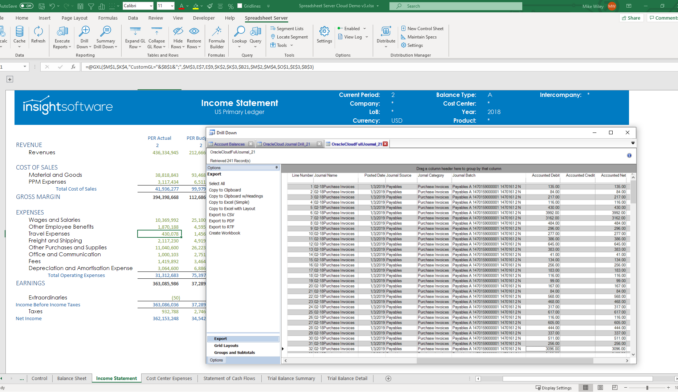Q&A Tuesday with Tyee Carr: Adapting to the New Landscape in Accounting

Tyee Carr, CPA, leads a team of finance/accounting professionals as the Managing Partner of Tyee Carr Advisory. In addition to providing outsourced CFO and specialized consulting services, Tyee reaches an audience of accounting insiders through his widely-consumed articles, podcasts, and YouTube videos. We spoke with him about the effects of coronavirus on accounting departments and why fresh perspectives matter more than ever.
What kinds of challenges did CFOs face in 2020 before the outbreak of COVID-19?
For years now, the challenge at the top of everyone’s list is the quick pace at which business, technology, and innovation are all moving. People want to keep up with best-in-class processes to avoid getting left behind, but they don’t want to make dumb investments either. I don’t subscribe to the notion that automation is always a good thing, and one of the challenges for CFOs is evaluating the ROI for a technology. You do that the way you always have: by taking what you know about the amount of time an accounting process takes and what it costs the company, then looking at whether a tech product can provide a material benefit.
How have the challenges changed after the outbreak?
Companies have one priority right now: securing the short-term cash flow they need to survive long enough to get back to full operations. Beyond that, CFOs and other executives have the challenge to decide what pivots to take. I said we need cash to get back to normal, but is there ever going to be a normal again? Maybe not. At least it won’t look the same as it did six months ago. Maybe the biggest challenge will be figuring out what pivots to make to adapt to the“new normal.”
Along with tracking the amount of cash on hand, what metrics are CFOs obsessing over right now?
Tracking receivables is really important. With the economic turbulence, there’s a risk of seeing a lot of unpaid invoices. As mentioned, companies also need to secure their cash flow, which is why I’ve seen some companies contract their payment terms from one month to two weeks. On the other side of the equation, I’ve seen companies explore delaying payments, which is something you need to be really cautious about depending on the vendor.
In your experience, do today’s finance departments suffer from an information deficit?
I think the finance team has always been data-driven within itself. The question might be how much of the rest of the business suffers from deficits and how much is it up to the CFO to resolve this issue? Most modern CFOs are leading the charge to use technology to make organizations more data-driven, applying data to processes and decisions everywhere. I don’t think the current crisis will change that imperative at all.
What technologies do CFOs need to facilitate data usage?
It depends on the industry and the size of the company, but I often think the missing link is integrated technologies. Some critical technologies don’t integrate with the ERP system or with the accounting system. So the holy grail I see a lot of CFOs searching for is technologies that can work together to solve problems.
Will financial reporting change in any way because of the pandemic?
Public companies may have to start disclosing metrics related to pandemic preparedness—the amount of PPE on hand as an example—but that’s purely hypothetical. From an internal perspective, I think cash flow planning is critical right now. Even small businesses need a model that forecasts cash flow out based on different scenarios and explores how it affects KPIs. I’ve found that the businesses that already had a planning framework in place, meaning the tools and processes needed to adapt strategies, have fared better thus far. They could explore what things looked like with half the sales or 10 fewer employees and then act accordingly. I would like to think the present circumstances will inspire all companies to become more adaptable than they were before.
How does a CFO determine that technology is the right solution to a problem compared to something like hiring more staff or refining existing processes?
Working with an outside advisory firm helps, but you have to be careful of the fact that a lot of advisors want to push a specific product or process even if it’s not the best solution. So I recommend looking for advisors who are agnostic about the advice they give and objective about the services they deliver. Beyond that, I believe people come before processes or technology. By that, I mean that you can’t just implement new technology or tweak a process and expect improvements. You need people in place who understand what’s going on with something like cost accounting and how technology fits into the equation. Technology won’t fix an issue you don’t understand.
This interview was edited and condensed.
Looking for ways to adjust to the “new normal” for finance and accounting? Check out our COVID-19 Resource Page today.








